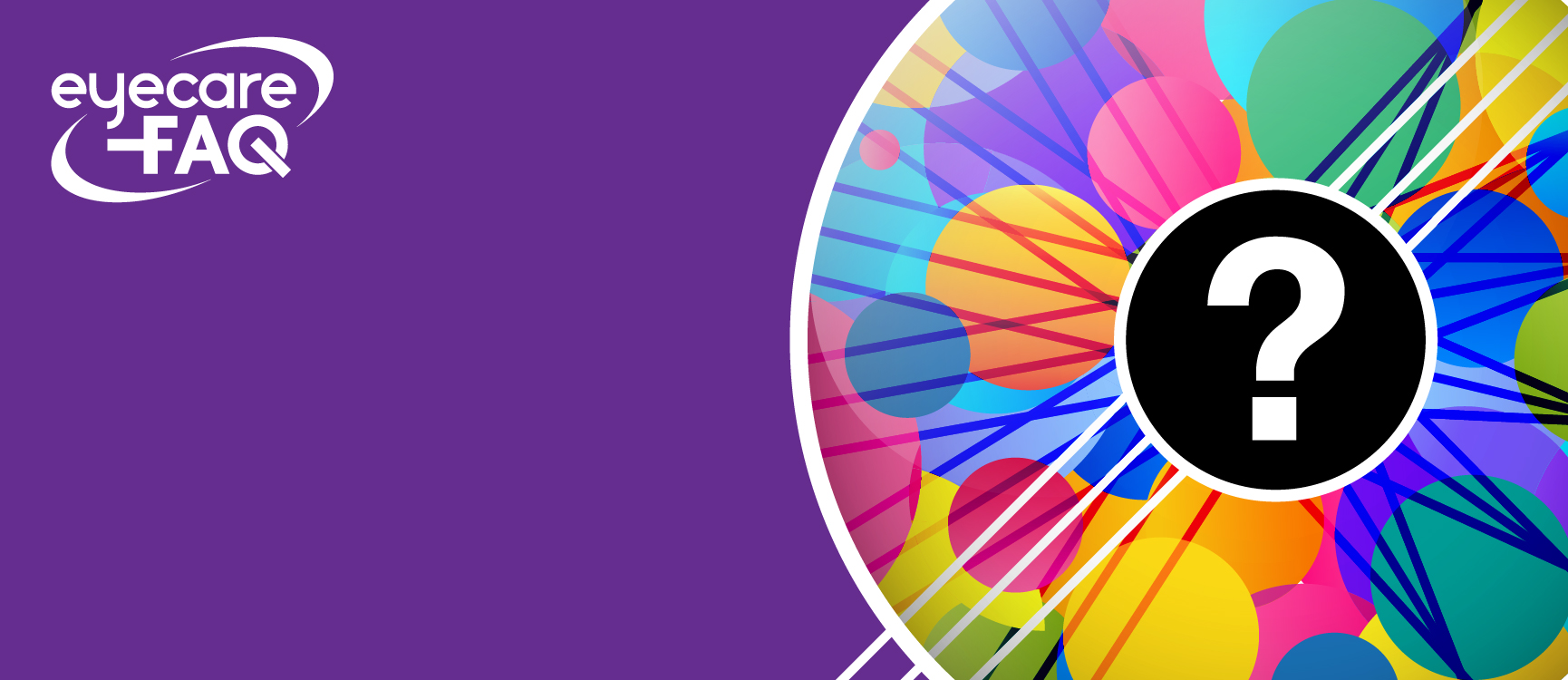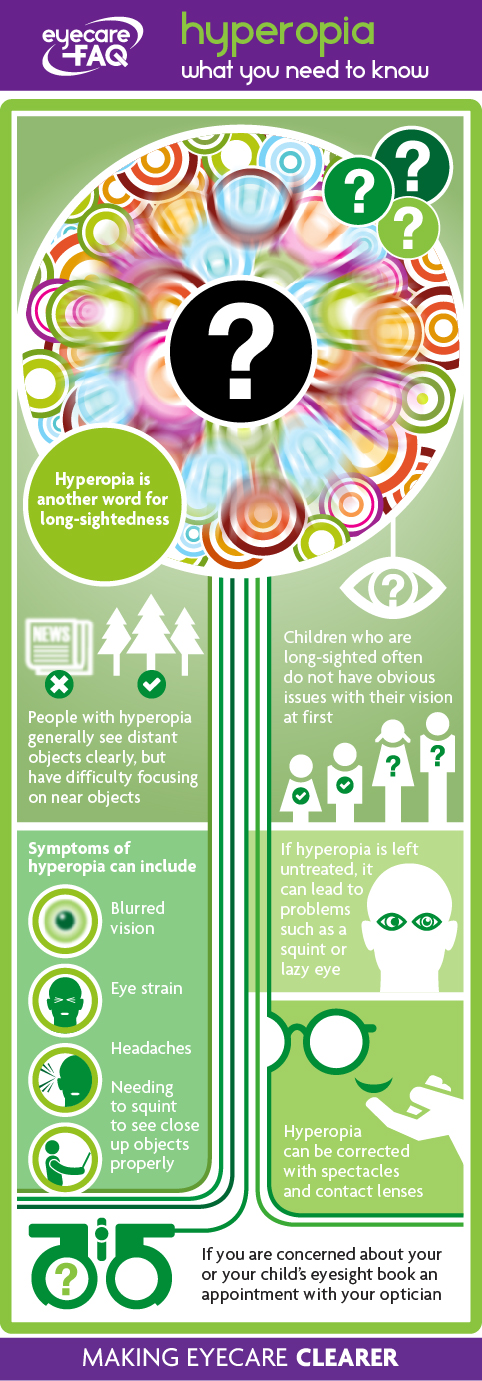What is Hyperopia?
Hyperopia is another word for long-sightedness. People with hyperopia generally can see distant objects clearly, but has difficulty focusing on objects that are up close.
What causes hyperopia?
Long-sightedness is when the eye does not focus light on the retina (the light-sensitive layer at the back of the eye) properly.
This may be because:
What are the signs of hyperopia?
Symptoms of hyperopia can include:
- Blurred vision
- Eye strain
- Headaches
- Needing to squint to see close up objects properly
Children who are long-sighted often do not have obvious issues with their vision at first. But if left untreated, it can lead to problems such as a squint or lazy eye.
If you are concerned about your or your child’s eyesight book an appointment with your local opticians practice.
How is hyperopia treated?
People who are have hyperopia struggle to see things close up. This can be corrected with spectacles and contact lenses.
Does hyperopia run in the family?
If you have hyperopia it may be a result of the genes you inherited from your parents.


